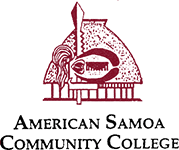American Samoa Community College MOODLE
15 Week Session
The basic principles of horticultural crop production include growth, development, reproduction, propagation, and management of the crop environment: soil fertility and plant nutrition, water, temperature, light and wind; crop hazards of weeds, pests and diseases. The production practices for world food crops are studied. Production of locally important crops is emphasized. Practical sessions to complement lectures include field visits and laboratory exercises. (Note: 3 lecture credits and 1 lab credit)
- Teacher: Ioanatana Faasavalu
The basic principles of horticultural crop production include growth, development, reproduction, propagation, and management of the crop environment: soil fertility and plant nutrition, water, temperature, light and wind; crop hazards of weeds, pests and diseases. The production practices for world food crops are studied. Production of locally important crops is emphasized. Practical sessions to complement lectures include field visits and laboratory exercises. (Note: 3 lecture credits and 1 lab credit)
- Teacher: Ioanatana Faasavalu
This course provides a comprehensive overview of wildlife, wetlands, and marine natural resources. Special emphasis is on local species, communities and ecosystems. Laboratories are field-oriented, focusing on identification and measurement of resource conditions. (Note: 4 lecture credits)
- Teacher: Ioanatana Faasavalu
This course provides a comprehensive overview of wildlife, wetlands, and marine natural resources. Special emphasis is on local species, communities and ecosystems. Laboratories are field-oriented, focusing on identification and measurement of resource conditions. (Note: 4 lecture credits)
- Teacher: Ioanatana Faasavalu
